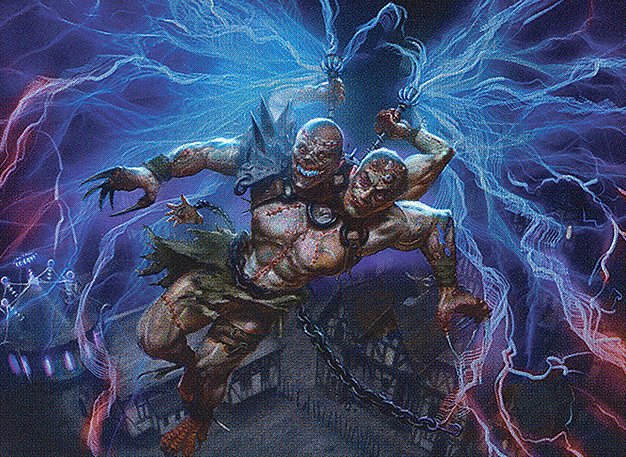Deck & Commander Strategies

Feldon, Ronom Excavator
Recurs creatures from the graveyard to maintain board presence and generate value, aiming to grind out opponents with resilient threats and incremental advantage.


Sidar Kondo of Jamuraa and Kraum, Ludevic's Opus
Utilizes Sidar's ability to protect and enable attacking creatures alongside Kraum's card draw and damage triggers to pressure opponents early and maintain tempo.
Gameplay Insights
- 1
Feldon's ability to repeatedly recur key creatures from the graveyard proved crucial in shifting momentum.
- 2
Sidar/Kraum's strategy relied heavily on early aggression and card advantage through combat damage, but struggled to keep up with Feldon's recursion engine.
- 3
Maintaining board presence via creature recursion allowed Feldon to outlast opponents in a grindy Duel Commander match.
Notable Cards
-

Feldon, Ronom Excavator
-

Sidar Kondo of Jamuraa
-

Kraum, Ludevic's Opus
Gameplay Summary
The game was a Duel Commander match pitting a Feldon, Ronom Excavator deck against a Sidar Kondo of Jamuraa and Kraum, Ludevic's Opus partner deck.
Early turns saw both players developing their boards cautiously, with Feldon focusing on reanimating key creatures from the graveyard to generate incremental value.
Sidar and Kraum leveraged their synergy to ramp and apply pressure with evasive threats, aiming to capitalize on combat damage triggers and card draw from Kraum.
The pivotal moment arose when Feldon successfully recurred a powerful creature, shifting the tempo in his favor and enabling a strong board presence that was difficult for Sidar/Kraum to answer.
From there, Feldon's deck methodically dismantled the opposition by using repeated creature recursion and attrition, ultimately securing the win through sustained value and combat dominance.


![Cow-abangga??! Mogis vs Sidar/Kraum | Round 3 | Block 101 | Duel Commander 010924 [REUPLOAD] thumbnail](https://i.ytimg.com/vi/Um3GQxiuOTY/sddefault.jpg)










![Commander VS S6E5: Sidar Kondo/Thrasios vs Ravos/Vial Smasher vs Tymna/Tana vs Ludevic/Kraum [MTG] thumbnail](https://i.ytimg.com/vi/LynU4jB9XLA/sddefault.jpg)

![Sidar & Thrasios vs. Gadwick Combo [Duel Commander-EDH] - Magic: The Gathering thumbnail](https://i.ytimg.com/vi/_nLPnZziXxY/sddefault.jpg)
![Sidar & Tymna vs. White Weenie [Duel Commander-EDH] - Magic: The Gathering thumbnail](https://i.ytimg.com/vi/r_TUA4yj49A/sddefault.jpg)
![Commander VS: Happy Johnny Appleseed Day! [EDH] thumbnail](https://i.ytimg.com/vi/GFdVvmC5xpE/sddefault.jpg)











